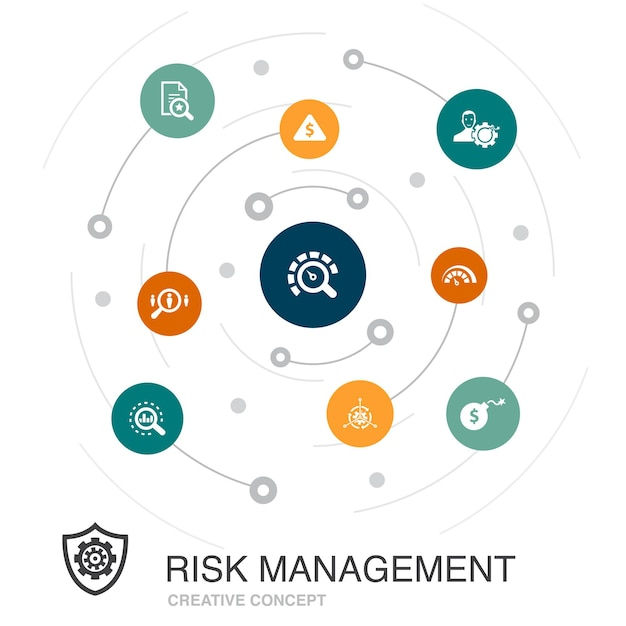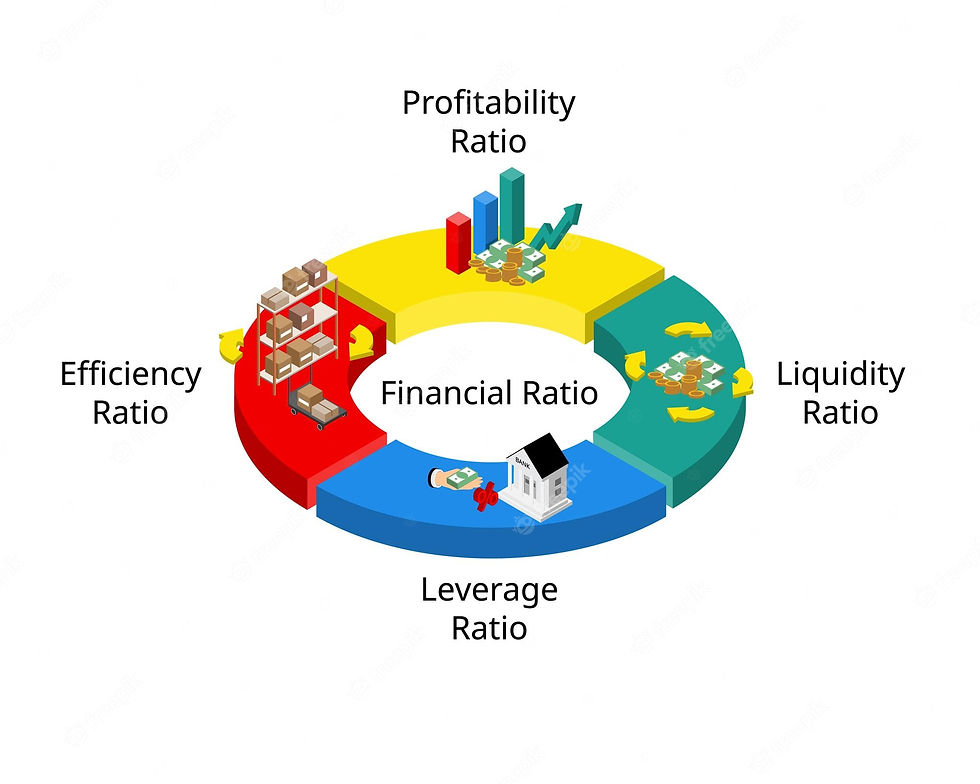National Risk Assessment: Understanding and Mitigating Money Laundering and Terrorism Financing Risk
- Victor Vita

- Jul 25, 2023
- 5 min read

Introductio
Money laundering and terrorism financing pose significant threats to the global financial system and national security. To effectively combat these risks, countries conduct National Risk Assessments (NRAs). An NRA is a comprehensive process that helps identify, assess, and understand the specific money laundering and terrorism financing risks of a country. By evaluating the vulnerabilities, threats, and weaknesses within the financial and private sectors, NRAs enable authorities to allocate resources and implement measures to mitigate illicit financial flows and transactions. In this article, we will explore the importance of NRAs, their impact, and how countries manage the assessment process.
Unlock Your Financial Potential - Enroll Now in 'Learn to Invest' Course! Empower yourself with expert knowledge, master investment strategies, and pave your way to financial success. Don't miss out on this life-changing opportunity. Join us today and embark on a journey towards a prosperous future!
Understanding National Risk Assessment
A National Risk Assessment serves as a crucial tool for countries to recognize and comprehend the methods used for money laundering and terrorism financing within their jurisdictions. By conducting NRAs, countries gain a comprehensive understanding of the risks associated with these illicit activities. This understanding helps develop robust anti-money laundering and terrorism financing action plans and policies. NRAs also promote collaboration between relevant authorities, the private sector, and other stakeholders to ensure a common understanding of the risks involved.
Countries must adopt a risk-based approach when conducting NRAs to tailor their assessments to their specific circumstances. This approach allows for the identification of systematic risks rather than relying on a sector-based analysis. By using this method, institutions can determine their own risk values within the scope of the national risk assessment.
The Importance of National Risk Assessment
Safeguarding Financial and Economic Structures
Money laundering can undermine the integrity, reliability, and stability of a country's financial and economic systems. NRAs help identify the main sources, trigger points, and methods of money laundering within a country. By evaluating vulnerabilities and risks across various sectors, NRAs enable authorities to address weaknesses within institutional systems and develop effective risk-based policies and actions. This ensures the safeguarding of financial and economic structures from illicit activities.
Compliance with International Requirements
To comply with mandatory international requirements, countries must conduct NRAs. Failure to do so may result in being labeled as a non-cooperative jurisdiction by organizations such as the Financial Action Task Force (FATF). Conducting NRAs helps countries meet these obligations and prevents them from being "grey" or "black" listed. Compliance with international standards not only enhances a country's reputation but also strengthens its anti-money laundering and terrorism financing regime.
Conducting a National Risk Assessment
The Role of Government Agencies
Government agencies play a crucial role in the NRA process. They are responsible for coordinating and overseeing the national action plan to ensure collaboration among key stakeholders. These agencies work closely with the Financial Intelligence Unit (FIU), Solicitor General, Financial Secretary, Commissioner of Police, Central Bank, Director of Public Prosecutions (DPP), Customs, Immigration, and the Supervisor of Insurance and Private Pensions (OSIPP). Their combined efforts contribute to the successful implementation of NRAs.
Collaboration with Private Sector
The private sector's involvement is essential in conducting NRAs. Collaboration with businesses in sectors such as banking, securities, insurance, credit unions, money value transfer services, and non-financial businesses and professionals (e.g., lawyers, accountants, real estate agents) provides valuable insights into the risks associated with their operations. By including the private sector in the NRA exercise, a collaborative national response can be developed to combat money laundering and terrorism financing effectively.
Data Collection Methods
NRAs employ various methods to collect relevant information. Mandatory questionnaires, interviews, and focus group meetings are conducted to gather data from businesses, organizations, and individuals. The data collected is consolidated, ensuring confidentiality and anonymity, and used to form a comprehensive assessment of the risks involved. The information collected through these methods provides a holistic view of the country's money laundering and terrorism financing landscape.
NRA Duration and Frequency
The NRA process is typically a year-long project, resulting in the production of an NRA report. However, NRAs are ongoing processes and must be conducted every 3-5 years. This periodic assessment ensures that countries stay updated on emerging risks and can adapt their strategies accordingly. The NRA's continuous nature allows for the evaluation of the effectiveness of implemented measures and the identification of new threats.
Managing the NRA Process
Countries have different approaches to managing the NRA process, depending on their specific circumstances. While there is no single method, various guidelines and tools are available to assist in the evaluation process. The World Bank, FATF, and International Monetary Fund offer valuable resources and tools for countries to utilize. One widely used tool is the World
Bank's NRA tool, consisting of eight modules that cover different aspects of money laundering and terrorism financing risks. This comprehensive tool helps countries assess financial product risks, sectoral weaknesses, and develop appropriate measures to address identified risks.
Examples of NRA Implementation
United Kingdom
The United Kingdom conducted its latest NRA in December 2020. The report highlighted deficiencies in the suspicious activity reporting regime and addressed important legal changes related to financial crimes. The UK's NRA report provided insights into the specific risks faced by the country and identified areas that required enhanced measures to combat money laundering and terrorism financing.
Singapore
Singapore carried out an NRA that spanned two years and covered 14 financial and 8 non-financial sectors. The assessment identified sectors at higher risk of money laundering and terrorism financing and recommended risk-based Know Your Customer (KYC) and Customer Due Diligence (CDD) processes for these sectors. The NRA report prompted financial institutions to implement comprehensive measures to mitigate potential risks.
Conclusion
National Risk Assessments play a crucial role in identifying, assessing, and mitigating money laundering and terrorism financing risks. By conducting NRAs, countries can better understand the methods employed by criminals, evaluate vulnerabilities, and strengthen their anti-money laundering and terrorism financing regimes. Collaboration between government agencies and the private sector is essential for a successful NRA process. Continuous assessments and periodic updates ensure countries stay ahead of emerging risks. By effectively managing NRAs, countries can safeguard their financial and economic structures and comply with international requirements, contributing to a safer global financial system.
Additional Information:
The NRA process involves the identification of criminal activities generating significant proceeds, assessing vulnerabilities in the financial and private sectors, evaluating the effectiveness of anti-money laundering measures, and allocating resources based on the level of risks.
NRAs are crucial for countries to avoid being labeled as non-cooperative jurisdictions by international organizations like FATF.
The World Bank's NRA tool is widely used by countries for comprehensive risk assessment.
NRAs help countries develop risk-based policies and actions, ensuring effective measures are in place to combat money laundering and terrorism financing.
The involvement of the private sector is crucial in identifying and addressing risks associated with their respective industries.
NRAs are ongoing processes and should be conducted every 3-5 years to stay updated on emerging risks.






Comments